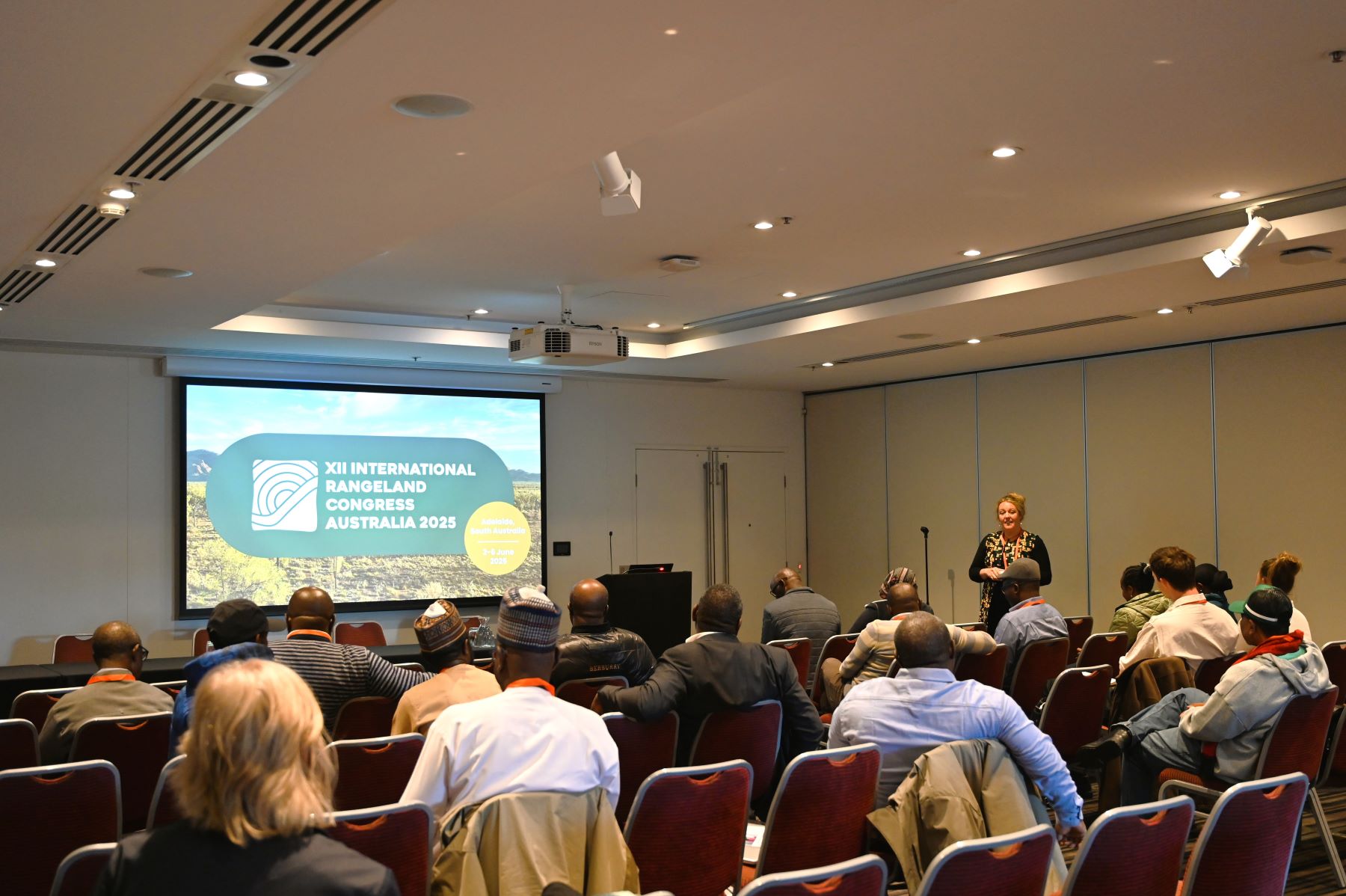Over 600 delegates from 60 countries gathered at the XII International Rangeland Congress (IRC) in Adelaide in June to bring rangelands to the forefront of global sustainability conversations.
The Congress was held under the theme 'Working together for our global rangelands future.'
It highlighted innovative approaches to land restoration, indigenous knowledge and the integration of investment-ready climate solutions, setting the scene for the upcoming International Year of Rangelands and Pastoralists in 2026.
The event included prominent voices from policy, governance, academia, research, legal, security and the private sector, including 15 delegates from East and West Africa, sponsored by ACIAR through the Africa-Australia Partnership for Climate Resilient Agriculture (AAPCRA). Most importantly, it featured pastoralist communities, many of whom face the challenges of climate change and land degradation firsthand.

Voices that count
Rangelands cover more than half of the world's land area. They are increasingly recognised for their potential to enhance climate resilience, uphold indigenous rights and support economies, primarily through regenerative practices that restore rather than deplete.
As Dr Anika Molesworth, founder of Climate Wise Agriculture, said in her keynote address 'Rangelands are not empty lands. They are living mosaics of biodiversity, culture, and production. Their regeneration begins with mindset shifts, deep listening and renewed partnerships.'
The Congress held over 100 sessions, which showcased community-led rangeland management across different parts of the globe.
Breakout rooms held discussions of diverse topics, including women's leadership, tenure reform and disability rights. Each session emphasised that inclusion is more than representation. It's also about redesigning systems to respect diverse experiences and wisdom.
'The Congress was a pivotal moment for the West and Central African Council for Agricultural Research and Development (CORAF), highlighting the need for strong alliances that promote sustainable, context-specific agropastoral systems,' said Dr Moumini Savadogo, the Executive Director at CORAF.
'The opportunity to forge new partnerships will strengthen our subregional efforts to support inclusive and resilient livestock systems in Africa, helping us respond to the evolving challenges in the sector.'
Communal land tenure rights and the current competition for land for other large investment projects (such as green energy) were also highlighted as emerging challenges.
'Engaging with pastoralist communities as legitimate stakeholders can lead to the coexistence of energy projects and pastoralism, translating to improved biodiversity and equitable economic benefits,' said Dr Hussein Tadicha Wario, Executive Director of the Centre for Research and Development in Drylands (CRDD) and Project Leader for this ACIAR-funded project focusing on rangeland.
'Through ongoing research, we are unpacking that pastoralists can respond effectively to risks and take advantage of opportunities through internal mechanisms to support their livelihoods in times of shocks. They also rely on collective systems of solidarity, mutual support and reciprocity, and have overlapping concentric circles of support to mobilise resources and information to support daily decisions through social networks and principles of solidarity and sharing.'
The four-year project is revealing that approaches that focus on local practices, relationships, cultures and knowledges are better placed to build resilience than more conventional interventions that promote solutions-based project design.
Sustainable interventions
The Congress considered many solutions to the challenges pastoralists face.
Herbivores, long miscast as climate villains, can serve as regeneration agents when managed through adaptive, research-based systems. These can also quantify carbon, biodiversity and productivity through satellite monitoring and standardised reporting.
Cutting-edge technologies, ranging from satellite monitoring to carbon accounting platforms and models such as the STELARR project, took centre stage as tools for scalable land restoration. Yet, the Congress emphasised that technology must be guided by context and local insight.
Pastoralists also play a vital role as stewards of vast territories and biodiversity, while producing nutritious food and by-products. These not only sustain rural communities in fragile and vulnerable regions but also contribute to wider market systems.
'Research based on a holistic view of livestock systems within the broader sociocultural, gender, policy and economic contexts, could significantly influence conflicting interventions across different sectors,' said Dr Steven Crimp, Research Director at ACIAR.
'This way, rather than prescribing universal solutions, the focus shifts to 'options-by-context' - tailored strategies that draw strength from local realities.'
Learn more about the related ACIAR project: Exploring local constructs of resilience in the face of chronic uncertainty in the drylands (LS-2022-144)
ACIAR was a gold sponsor of the XII International Rangeland Congress supported through the Africa-Australia Partnership for Climate Responsive Agriculture (AAPCRA).






